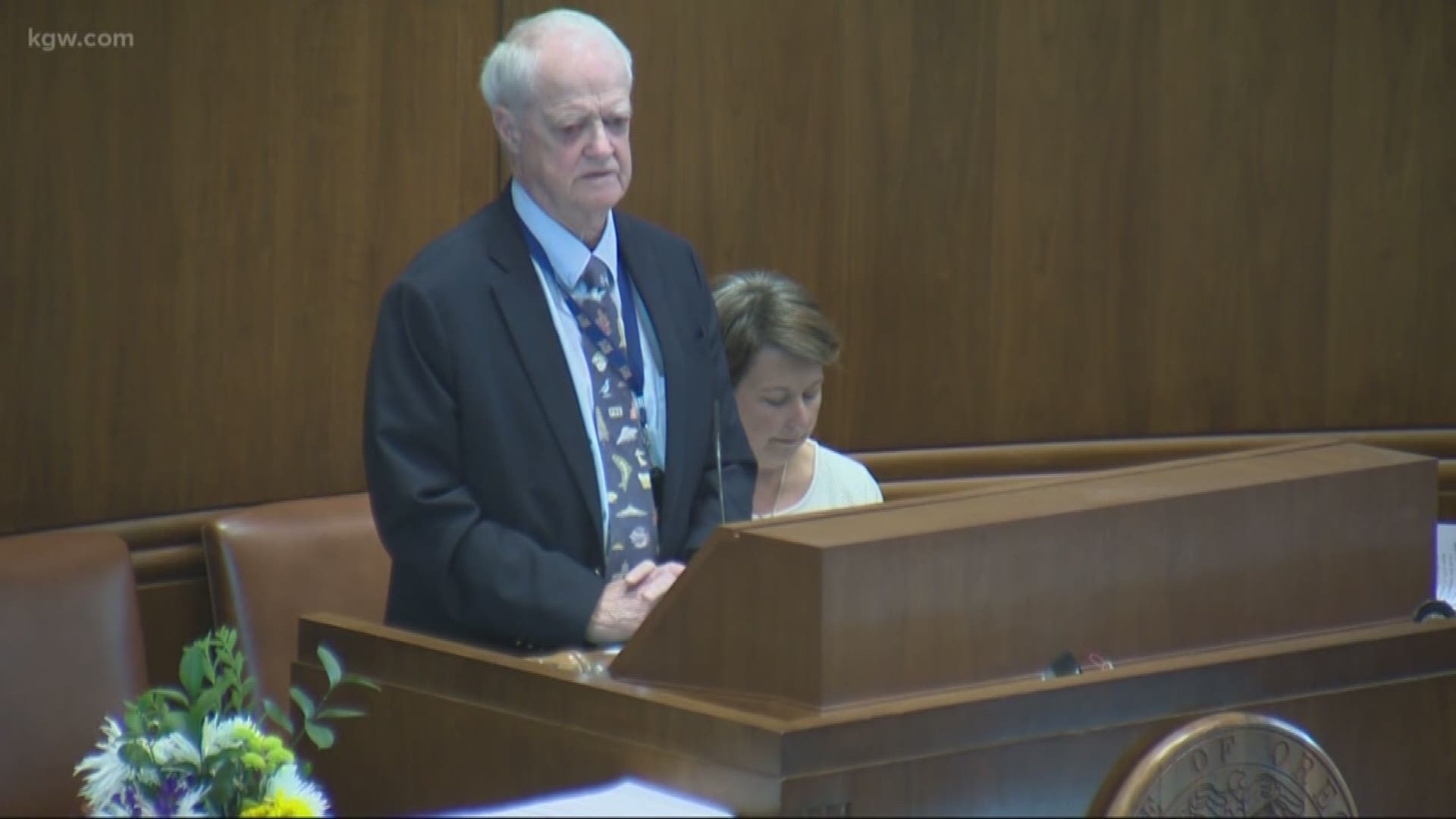SALEM, Ore. — Senate Republicans in Oregon say they need further assurances from Democrats about the fate of a landmark climate bill if they are going to put an end to their walkout that has dragged on into a sixth day.
Senate Minority Leader Herman Baertschiger said in a statement Tuesday that Republicans are still trying to "sort out" how to proceed in the wake of an announcement from Democratic leadership that a cap and trade plan has lost support among Democrats.
Baertschiger says Republicans need further assurances that the legislation is at a "complete end." The Minority Leader adds that he still needs to have further conversations with Democrats so that "Republicans feel comfortable with the process."
“This is good news, however we are still trying to sort out the process," Baertschiger said in a statement. "The bill itself has been second read and a vote will have to take place. Republicans must be assured that the vote or motion will guarantee the bills complete end. We need to have further conversations so that the Republicans feel comfortable with the process."
Republicans have fled the Capitol-- and the state-- to avoid a vote on a statewide cap on carbon emissions. Senate President Peter Courtney begged Republicans to return saying there's still dozens of policy measures to approve before the Legislative session ends on Sunday.
Cap-and-trade bill
Under the proposed cap-and-trade bill, Oregon would put an overall limit on greenhouse gas emissions and auction off pollution "allowances" for each ton of carbon industries plan to emit. The legislation would lower that cap over time to encourage businesses to move away from fossil fuels: The state would reduce emissions to 45% below 1990 levels by 2035, and 80% below 1990 levels by 2050.
Democrats say the measure is an efficient way to lower emissions while investing in low-income and rural communities' ability to adapt to climate change. It has the support of environmental groups, farmworkers and some trade unions.
Those opposed to the cap-and-trade plan say it would exacerbate a growing divide between the liberal, urban parts of the state and the rural areas, which tend to be more conservative. The plan would increase the cost of fuel, damaging small business, truckers and the logging industry, which is already in freefall due to federal environmental protections, they say.
LEARN MORE: What is cap-and-trade?

